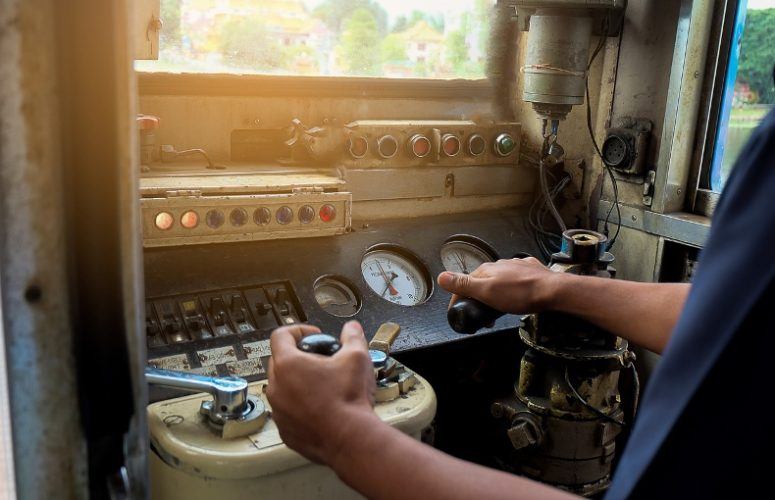
Workforce Training: Keeping Pace with the Changing Nature of Labor
Workforce development efforts in New Jersey combine high-tech apprenticeship training facilities and academic partnerships to address employer needs.
By Joe Cavaluzzi, Contributing Writer On Aug 9, 2019Apprenticeship and training programs are expanding in New Jersey to address the changing nature of work shaped by quickly evolving technologies. Even with the state’s unemployment rate around 4 percent, trade unions report high demand for their apprenticeship programs from workers seeking better-paying jobs and benefits.
The New Jersey Council of Community Colleges, which offers several training programs through the New Jersey Community College Consortium for Workforce & Economic Development at the state’s 19 community colleges, continues to see strong demand from employers as well. Last year, 791 companies sent more than 10,000 employees to consortium-sponsored classes. These numbers are down from 2017, due primarily to a 24.3 percent reduction in funding. The workforce development project provided $1.4 million in tuition training dollars for New Jersey businesses, a year-over-year decrease equal to its funding cut.
“The world is changing rapidly, and the nature of work is changing. It’s impossible to predict what profession will be in demand in 10 or 20 years,” says Aaron Fichtner, president of the Council of County Colleges and former NJ State Labor Commissioner under Gov. Chris Christie. “We are trying to prepare community college students with problem-solving and team-working skills – skills that all of us need – to prepare them for today’s workforce needs of healthcare workers, technical skills in advanced manufacturing, and construction occupation skills. We need to retool throughout our lives to change careers and keep up with tech needs.”
The funding picture is looking up and Fichtner credits Gov. Murphy and the state with pushing New Jersey in an innovative direction. The consortium recently garnered a $950,000 state grant for advanced manufacturing training and $12 million from the federal government for the advanced manufacturing training facility at the County College of Morris and healthcare training at Bergen Community College.
Creating a Better Educated Workforce
“We believe those types of investments are essential. We’re a well-educated state with 52 percent of the people having some education after high school. But that means 48 percent don’t, and the way our economy works and is evolving, that 52 percent is not enough,” Fichtner says.
So, the consortium has undertaken its 65-by-25 Initiative – part of fresh look at its workforce development mission in the organization’s Vision 2028 reassessment, with the goal of increasing the percentage of the population that has some post-secondary education or training to 65 percent by 2025.
“What we’re doing is increasingly working together with our community colleges to involve them in these initiatives in different ways,” Fichtner says.
Trade unions have strong apprenticeship programs in New Jersey, and some are working with state colleges and universities to create a path to a degree for their members.
IBEW Local 102 has entered into a partnership with Rowan University. In addition to its own comprehensive five-year apprenticeship and continuing education programs housed in the union’s 16,000-square-foot training facility in Parsippany, Local 102 partners with Rowan to offer members a BA in Construction Management.
“The Rowan University program is in its early stages as we entered into our partnership in 2017. In that short timeframe, we have had eight members set out on the path toward a BA in Construction Management,” Local 102 President Bernard Corrigan says. “We expect to see our first graduates receive their diplomas in the very near future.”
Trade unions also continue to work with high schools to help produce graduates with basic skills to enter a trade or manufacturing job as an apprentice.
“There is a very strong resurgence of trade training in secondary schools,” Northeast Carpenters Apprenticeship Fund Executive Director Nick DeMatteo says. “We have a program called Career Connections and we’re working with about 20 high schools, where students can use our curriculum and our instructors. It’s a two-year program where they can get up to a year’s worth of credit in our apprenticeship program. It’s not automatic. They have to do the work.”
The Carpenters Apprenticeship Fund operates training centers in Hammonton and most recently in a new training facility in Edison, which the New Jersey Business & Industry Association recently recognized with a 2019 New Good Neighbor Award for outstanding commercial or industrial facilities that improved the economic landscape of New Jersey. Enrollment fluctuates between 1,000 and 1,200, but the Edison facility has the capacity to train about 1,500 people.
Worker Demand for Apprenticeships Growing
Corrigan says Local 102 continues to receive 400 to 500 applications a year for approximately 50 apprenticeship spots.
The New Jersey Manufacturing Extension Program’s (NJMEP) Pro-Action Education Network Apprenticeship Program addresses the demand for technical skills driven by advanced manufacturing, training about 100 people as industrial manufacturing production technicians, and 50 each in technical sales and as certified logistics technicians’ programs.
NJMEP offers a registered apprenticeship program that combines on-the-job learning with related classroom instruction. An apprentice works under the guidance of a mentor during on-the-job training.
NJMEP is awaiting U.S. Department of Labor approval of its Computer Numerical Control (CNC) and Food Production Safety training as well as a program in cyber security. The organization also is waiting for approval from the state Department of Labor and Workforce Development for a PACE (Pre-apprenticeship in Career Education) Grant to train Career Technical Education (CTE) students.
“We are testing many CTE students and other workers for consideration for apprenticeships,” says Patricia Moran, director of apprenticeship programs. “We hope to be strongly engaged with CTE schools for pre-apprenticeship work.”
Advanced Technologies in Training
Robert Lewandowski, communications director for the New Jersey Laborers Union, notes a trend toward using advanced technologies such as virtual reality (VR) in training.
“To put new learners on, for example, an aerial boom lift, means to either control the environment so much that it lacks realism, or put the student in danger,” Lewandowski says. “Through VR, we are able to offer full hands-on instruction while eliminating risk. It is a major change, and for the better.”
A change in where demand for training is coming from relates to recent changes in the state public works contractor registration requirements.
“Now, the requirements mandate a connection to a federally approved apprenticeship program, which we have been for the last 20-plus years,” Lewandowski says. “We are hearing from contractors and reaching out to others trying to explain the workforce development and regulatory compliance assistance we can deliver.”
The New Jersey Laborers recently opened registration to new apprenticeship applicants, and two hours before the union office opened, more than 800 men and women lined outside to apply for one of its three training centers. The NJ Laborers apprenticeship program takes workers to journey worker status through an 80-hour gateway General Construction class. On any given day, there are about 500 active apprentices in New Jersey; more than 60% of those apprentices are women and people of color.
A joint board of labor and management run the NJ Laborers training programs, which Lewandowski says has given them market-driven focus and keeps them attuned to industry changes.
“More than even aptitude, employers want workers with the right attitude. They want people who show up on-time, every time, ready to work and willing to learn. They want workers who invest in themselves through training,” he says. “They also want workers who work safely. Construction is a dangerous business and a safe worker is a productive worker.”
Gov. Murphy’s Direction in Training
The workforce development and trade union representatives interviewed for this story say Gov. Phil Murphy is taking workforce development in the right direction. In May, Murphy announced grant awards totaling more than $3 million to fund programs to employ and train apprentices in high-demand jobs with a sustainable career path. Murphy made the announcement the same day he spoke at the launch of the Holz Technik Academy in Jersey City. Academy attendees are hired by Eastern Millwork, attend Hudson County Community College, and eventually earn an Associate’s Degree in Advanced Manufacturing.
Funded through the DOL’s Growing Apprenticeship in Nontraditional Sectors (GAINS) grants, the $3 million is going to eight businesses and agencies that will hire and train nearly 350 apprentices in diverse occupations including paramedics, water treatment system plant operators, dementia care professionals, and computer system analysts.
DeMatteo says Murphy has been supportive of the Carpenters Apprenticeship Fund’s Youth Transition to Work Program, which worked with five vocational schools and one regular high school this year and hopes to expand to 10 to 12 schools next year.
“We bring in group of high school kids once a week and expose them to the basic tools of the trade. The Murphy administration has been supportive in helping us build that program,” he says. “It really is viable for a young person to have a job with a future and good income and retirement benefits, where for someone graduating from college, the future isn’t as secure and they come out of college with a lot of debt.”
Lewandowski credits the governor for trying to better connect worker-training and workforce development programs to industry needs, which he believes will drive the economy as well as worker success.
“Just like tax breaks, access to a skilled and productive workforce is also a big incentive for businesses looking to establish or grow. We all know there is still work to do, but I think we are very much on the right track.”
To access more business news, visit NJB News Now.
Related Articles:





